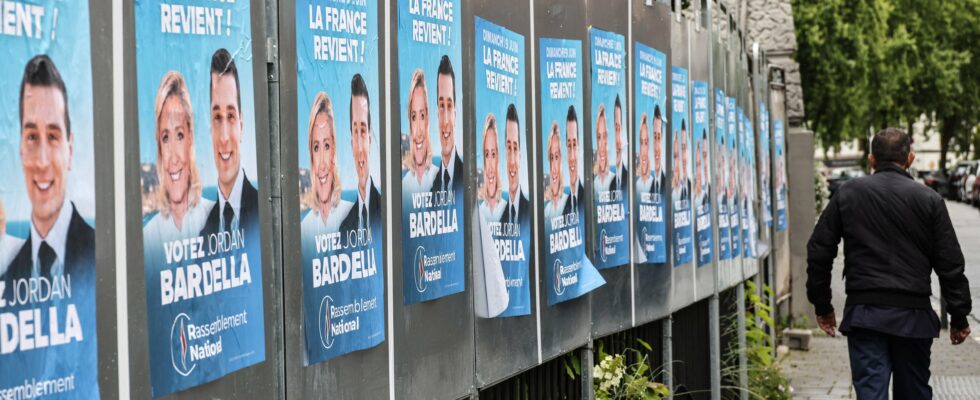Remake France the “energy paradise” that it once was, with more nuclear power and less renewables… The energy program of the National Rally (RN) is a vast bet on the future of France, but above all a wishful thinking , according to experts interviewed on the issue. Reading Marine Le Pen’s program for the presidential election in 2022, and that of Jordan Bardella, the president of the RN, for the European elections, it is an energy future made of shortage and volatility in the price of energy. electricity that is taking shape. The party, which intended to put in place a moratorium on renewable energies, is counting on nuclear power to ensure electricity production in France. Even if it means overdoing it. “The political positioning of the RN on nuclear power has fluctuated but lately they want to show that they are doing more than everyone else,” notes Nicolas Goldberg, energy specialist at Colombus Consulting and the Terra Nova think tank.
While Emmanuel Macron wishes to commit to the construction of 14 new nuclear reactors (a program for six new EPR2s was launched by the President of the Republic, who confirmed that he wanted to add eight EPR2s to these first projects), Marine Le Pen proposes to build six more in the coming years. In its 2022 program it mentions “five pairs of EPR for commissioning in 2031 and five pairs of EPR 2 for 2036”. “Building 20 EPRs is more than the nuclear industry demands and will not be able to do, and it is completely unrealistic to think that these reactors could be built within such a time frame,” judges Nicolas Goldberg. The nuclear recovery plan as presented by the Head of State is already a major industrial challenge and the doubts are already accumulating about the feasibility of such a project. The specialist also scratches the solution chosen by the National Rally to build old generation reactors with the aim of accelerating their construction and reducing costs: “EDF’s plan is to operate with second generation reactors, start again on old designs, which were not successful, would ultimately make the program more expensive and less efficient,” he judges.
Towards a more carbon-intensive mix
While waiting for the arrival of the new reactors, the RN intends to extend the lifespan of those that France already has beyond 60 years, and is banking on optimizing their operation to produce more energy. “Their extension is possible, and this is particularly what is done in the United States, but this cannot depend on political will alone because these extensions are subject to the approval of the Nuclear Safety Authority. It is also very uncertain that we will be able to further optimize their operation to improve their power when we are already at maximum performance”, tempers Patrice Geoffron, professor of economics at the University of Paris Dauphine-PSL and nuclear specialist . Another obstacle stands on the road to a 100% nuclear future, explains the expert: “Beyond design questions, there is a human challenge, the entire sector must already accelerate and recruit 100,000 people from by 2030, to maintain the installations in good condition and build the following… The RN program would require further increasing recruitment, which seems difficult.”
Finally, it would leave doubt about France’s capacity to meet the growing demand for electricity. According to projections from the Electricity Transport Network (RTE), France’s electricity needs will increase very sharply as a result of the electrification of uses, the transition of industry and transport. RTE’s work underlines in this respect that no credible decarbonization scenario in France can be achieved without massively developing wind and solar power. Electricity production from wind and photovoltaic sources today represents around 15% of the electricity produced in France. Doing without these resources would result in an immediate lack of energy which will have to be compensated by the installation of new thermal power stations, gas or coal. “We risk being more dependent on fossil fuels, and therefore being more exposed to ups and downs in energy prices,” notes Nicolas Goldberg. This is precisely what the National Rally seeks to avoid.
.
